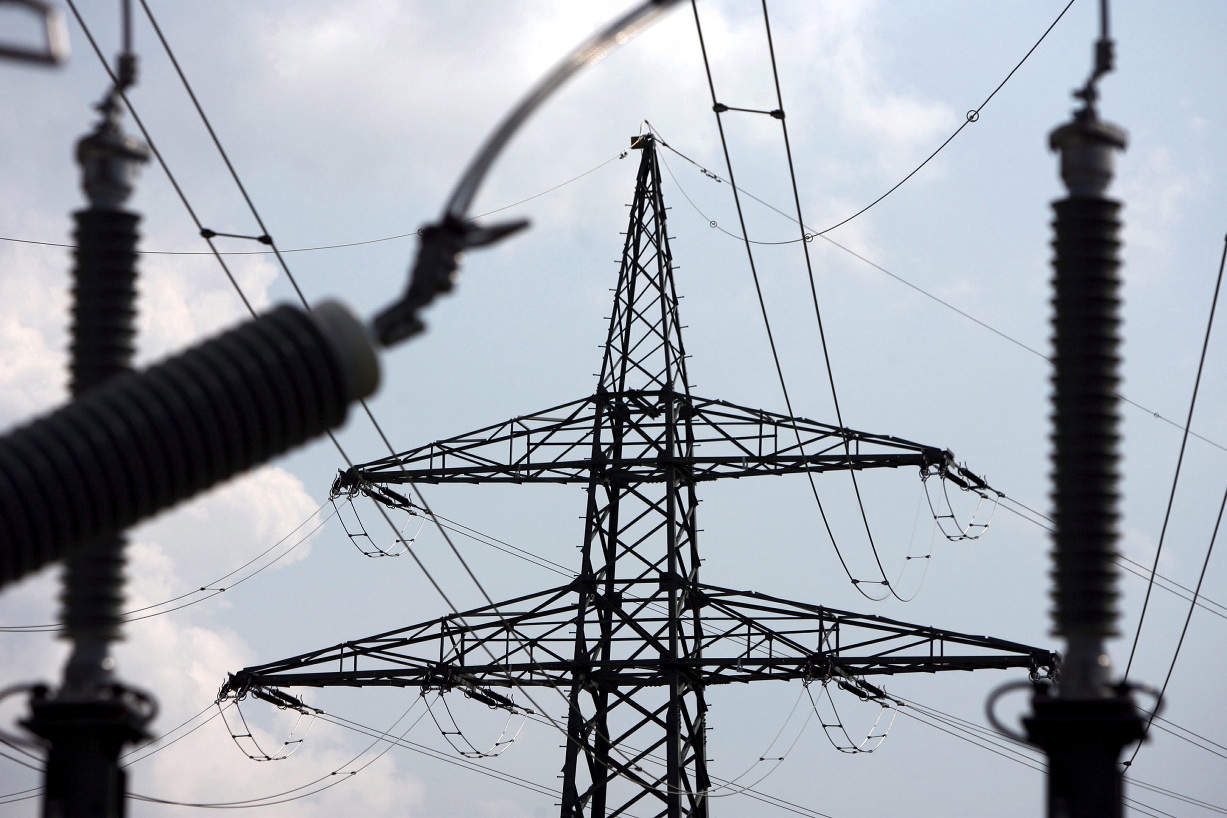In two male-dominated realms, economics and entrepreneurship, a young Arab woman managed to carve out a niche for herself. Oumnia Boualam boasts a strong track record of success as an economic researcher, business analyst, and now as an entrepreneur with a mission to simplify economics.
Boualam is the Managing Director and Co-founder of Brussels Global Review, an advisory and sustainability reporting firm. “Our work focuses on 2 main pillars: Advocacy and Sustainability Reporting on MENA countries for an audience of European Union institutions,” she told Daily News Egypt.
When the pandemic started, she took a leap of faith into the digital economy, “I always wanted to have my own business but never felt I was worthy or smart enough to do it. When the pandemic happened, I learned about the digital economy and saw endless opportunities to monetise your skills through it. I gave it a try and I loved it.”
She also educates people and aspiring entrepreneurs via social media on how they can leverage it to promote their business. She shares her experience and valuable insights through cheerful short videos.
Daily News Egypt interviewed Boualam to learn more about Brussels Global Review, how to boost sustainability in Egypt and the MENA region, and her tips for young entrepreneurs.
Let’s start with the basics. Can you tell us more about Brussels Global Review, what makes it different, and how can it help bridge the financing gap between the EU and MENA?
Brussels Global Review is based in Brussels, which is the heart and soul of the European Union. It’s also the 2nd most cosmopolitan city in Europe. 1 out of 4 people is originally Moroccan and you can find any European nationality. For that reason it made perfect sense for us to be based here in order to be able to bridge the gap between decision makers in the EU and the MENA region.
Our work focuses on 2 main pillars: Advocacy and Sustainability Reporting on MENA countries for an audience of European Union institutions.
We are also very lucky that our Chief Impact Officer, Soundous Boualam, has worked extensively at the European Parliament and in European Politics before joining BGR.
This allows us to provide high quality advocacy work for MENA countries in the EU bubble.
What are the main countries, and sectors that you are focusing on?
The MENA countries we focus on are those with strong ties with the European Union as well as a solid sustainability agenda: Bahrain, Egypt, Morocco, Tunisia, UAE, Saudi Arabia, Jordan, Qatar, and Kuwait.
Our reports are presented during high impact events we organise here in Brussels most of the time within the EU Parliament itself. I am very excited to share that we will be hosting this autumn a landmark event with the Egyptian embassy in Belgium focusing on Egypt’s sustainable economy and the opportunities for partnerships in digital transformation, green hydrogen, and social impact.
How can your reports benefit the Egyptian business community?
This is a crucial time for Egypt to showcase its Sustainable Development strategy and attract investments and partnerships in key areas of the economy. Our Sustainability reports feature organisations that are achieving Sustainable Growth and we present them to the top EU organisations looking to invest in the country, such as the European Investment Bank.
Overall we help showcase the true progress of Egypt here in Europe and build trust and excitement to further increase partnerships.
Does your work focus more on startups and SMEs or large corporations?
BGR launched two signature online programmes designed to help entrepreneurs and young professionals improve their personal and professional skills to earn more: The Digital Boss Academy (DBA) and the Muslim Communicator Academy (MCA).
The DBA helps entrepreneurs and young professionals leverage social media for business and acquire the digital skills needed to earn more in the digital economy.
The MCA helps people communicate with confidence and emotional intelligence at work and in their personal lives while feeling empowered to be Muslim.
These programs are already helping 300+ students although we just launched a month ago. We will be rolling them out throughout the whole region as we grow. Find us on Instagram or Tiktok to learn more about this.
Moving on to Egypt’s New Administrative Capital, how do you view this mega project?
Prior to 2015, Egypt had a significant infrastructure gap. Today the mega projects like NAC as well as the new cities provide state of the art infrastructure that is necessary to sustain the population growth and achieve economic growth. However it’s important to keep the right balance between building infrastructure and planning for sustainable growth.
From your perspective, why other major new cities being built in Egypt could not get proper attention?
To be honest it’s quite surprising that throughout our meetings here in Brussels, few people are aware that Egypt has a new capital of this size. That’s why our work is so important. The best way to promote Egypt’s Sustainability Agenda to an EU audience is to do it at the heart of the EU through advocacy and events.
How can you promote inclusive economic growth and build fundamentals for good corporate governance, in Egypt and MENA?
Corporate governance, like Sustainability, is a culture. It starts from the top and trickles down to the whole organisation. It has to be part of the thinking system of every member of the organisation. It starts with educating people, empowering them to take action, share ideas and so on.
In my opinion organisations should be less concerned about having shiny ESG reports and more concerned about implementing the right future and investing in people skills.
What drove you to start your journey as a digital creator?
I always wanted to have my own business but never felt I was worthy or smart enough to do it. When the pandemic happened I learned about the digital economy and saw the endless opportunities to monetise your skills through it. I gave it a try and I loved it.
The digital economy accounts for 15.5% of global GDP, growing two and a half times faster than the global GDP. In Africa alone the size of the digital economy is expected to reach $180bn by 2025. There are no borders or restrictions to what you can achieve in an online business. The winners are ultimately skilled people from the developing world.
What were the top challenges you faced when you started?
There were two main challenges I faced. Number one is not being taken seriously as a young Arab woman entrepreneur. The mindset in our society really needs to change when it comes to Entrepreneurship.
The second challenge: it was a steep learning curve. Transitioning from the traditional way of “doing business” to the new way requires a lot of learning and practice. When I started I would spend 5hours every single day creating content (even on the weekends), consistently for 1 year. And that was on top of my job. The biggest challenge is sacrificing a big chunk of your “social life” . I would even say disappearing for 6 months so you can learn and practice and ultimately come out with new skills 95% of the world doesn’t have yet.
How can entrepreneurs utilise social media to promote their startup effectively?
This week Instagram and Tiktok surpassed Google as a search platform for Gen Z (under 25). Looking at the number of users on social media needless to say everyone is on there. You can reach
anyone you want with the right strategy and messaging, for free and that’s the beauty of it. The internet has literally provided startups with a unique opportunity to promote themselves and attract clients or investors anywhere in the world.
What are your top 10 tips for aspiring entrepreneurs and content creators?
I’ll give five:
- Learn the skills that are in demand but not taught in university: Graphic design – Content creation – Social Selling – Storytelling…You can do that online for free or invest in an online course that will help you get results faster. Either way you win.
- It’s the daily small habits that make the big difference in the end.
- Ask for help and advice from people who have done what you want to achieve and don’t listen to outdated opinions.
- Maybe not everyone was meant to build a SaaS business (software as a service) but entrepreneurship; that can be for anyone. Sell digital products, coach people online, start a shopify store… opportunities are endless in the digital economy.
- Take care of your mindset, that’s the most important thing as an entrepreneur.


